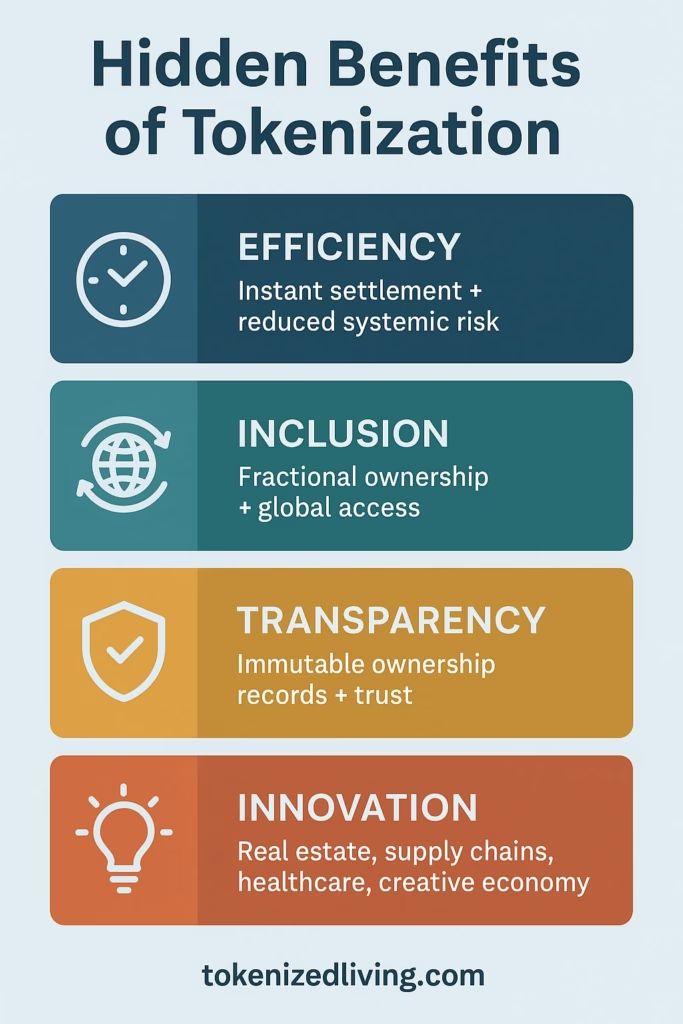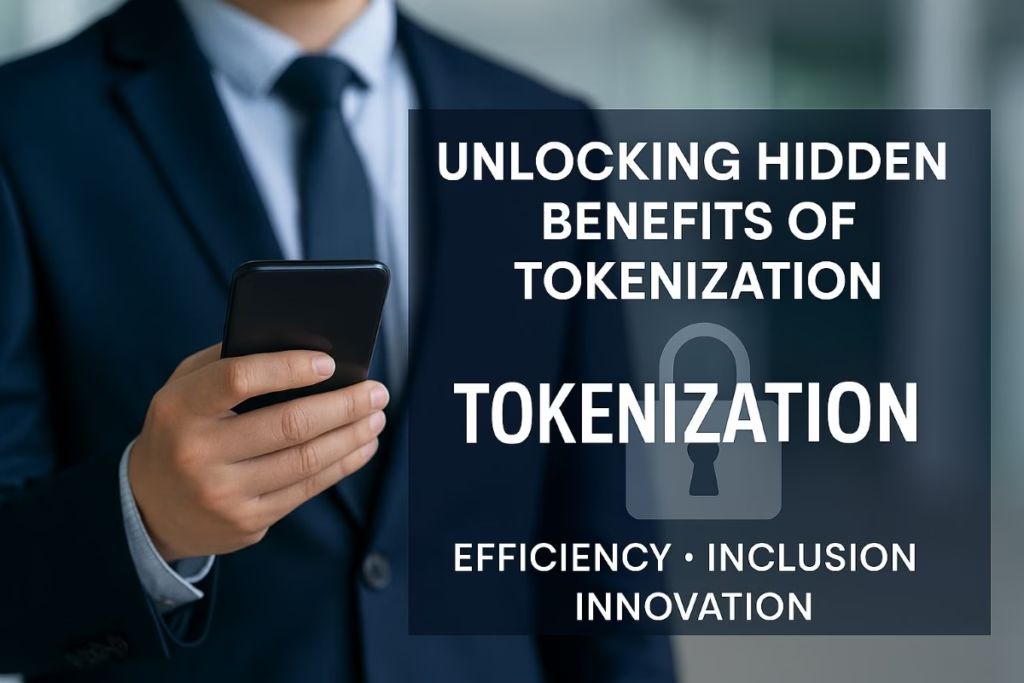Beyond efficiency and cost savings, tokenization unlocks hidden benefits: greater financial inclusion, democratized access to assets, improved transparency, and innovation across industries. From real estate to supply chains, its impact goes far beyond digitization.
“Tokenization is not just about efficiency—it’s about opening doors to markets and opportunities that were once out of reach.”
— World Economic Forum, Tokenization of Assets Report
🌍 Why Tokenization Matters Beyond the Obvious
Most discussions about tokenization highlight speed, cost reduction, and security. But as the ecosystem matures, the deeper benefits of tokenization are coming into focus—benefits that extend beyond financial markets and into everyday economic life.
⚡ Efficiency Beyond Transactions
Tokenization standardizes the way assets are represented, enabling instant settlement, automated compliance, and reduced intermediaries. But the hidden layer is operational resilience: businesses that adopt tokenization reduce dependency on outdated systems, lowering long-term costs and minimizing systemic risk.

💸 Financial Inclusion & Accessibility
One of the most transformative hidden benefits is inclusion. Tokenization allows fractional ownership of assets once reserved for institutional players—think real estate, fine art, or private credit. With blockchain rails, an investor in Lagos or Manila can access global opportunities alongside New York or London.
This isn’t just about investment access; it’s about wealth distribution and giving underbanked populations new entry points into financial systems.
🔍 Transparency & Trust
Blockchain-based tokenization ensures auditability at every step. This has wide implications for supply chains, government registries, and ESG reporting. By making ownership and transfer histories immutable, tokenization fosters trust in environments where opacity has been the norm.
🏗️ Innovation Across Industries
- Real Estate: Fractional property tokens create liquidity in previously illiquid markets.
- Supply Chains: Tokenized goods improve traceability and reduce fraud.
- Healthcare: Patient data tokenization enhances privacy while enabling controlled sharing.
- Creative Industries: Tokenized royalties streamline payments for artists and creators.
Each industry unlocks secondary efficiencies that compound into larger systemic innovation.

✅ Conclusion: The Deeper Benefits of Tokenization
Tokenization is often framed as a technical upgrade to financial systems. But its real value lies in reshaping access, trust, and innovation. By opening doors to underserved investors, enhancing transparency across industries, and fostering entirely new business models, tokenization is not just a tool for efficiency—it’s a catalyst for systemic change.
As adoption accelerates, the hidden benefits will become the primary story, proving that tokenization’s true power lies not in what it replaces, but in what it enables.
❓ FAQs: Hidden Benefits of Tokenization
Digitization simply makes data electronic. Tokenization adds ownership, transferability, and programmability on blockchain.
By enabling fractional ownership, individuals with limited capital can access investments like real estate or fine art.
Blockchain creates immutable records, boosting trust, auditability, and compliance across industries.
Beyond finance, supply chains, healthcare, and creative markets are emerging leaders in tokenization adoption.
Regulatory uncertainty, platform trust, and interoperability standards remain challenges as the technology scales.

